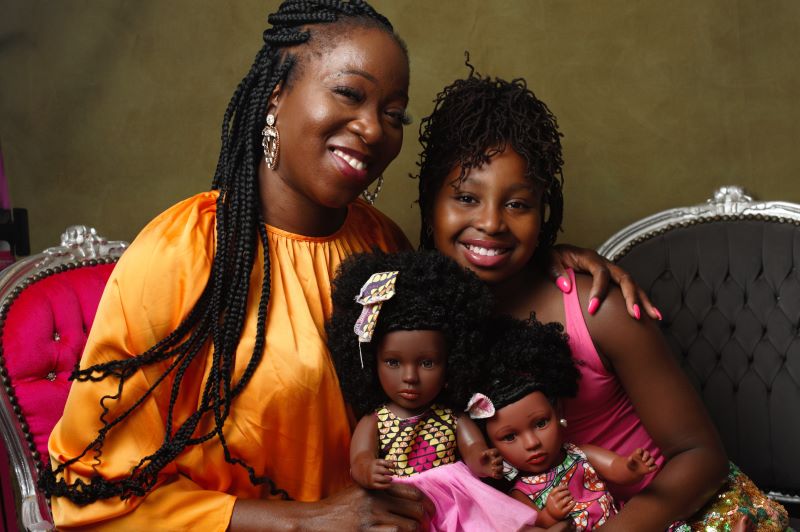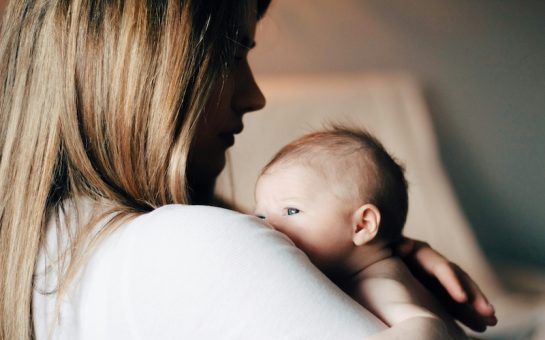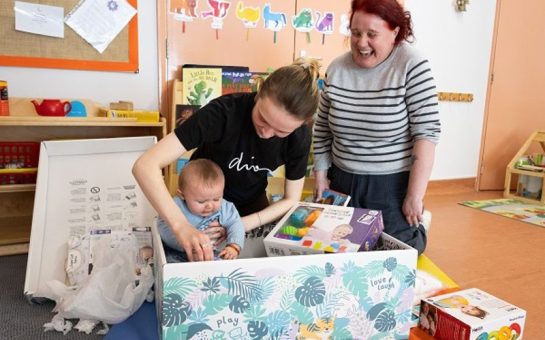When a Kensington mum couldn’t find a black doll for her daughter, she challenged the toy industry by opening a store filled with dolls with afros and brown skin.
In 2018, Lola Ogundele, 40, CEO and founder of Lola Love Dolls, went shopping for a doll that looked like her daughter Isabella, nine, but despite searching big-name department and toy stores, she could find only poor imitations.
Ogundele explained: “One assistant showed me a Barbie that was ashy-grey in colour with straight hair; it wasn’t black or dark skin, honestly, it was insulting.
“So, I didn’t even bother complaining, I just said this is it – I need to start a company.'”
Despite lacking experience, Ogundele sourced her first dolls and started trading on a small market stall, steadily growing to open a store on Portobello Road in August.
Lola Love Dolls now has a range of 22 dolls of varying afro curls and shades of brown skin, serving not only as toys but a voice to people of colour.
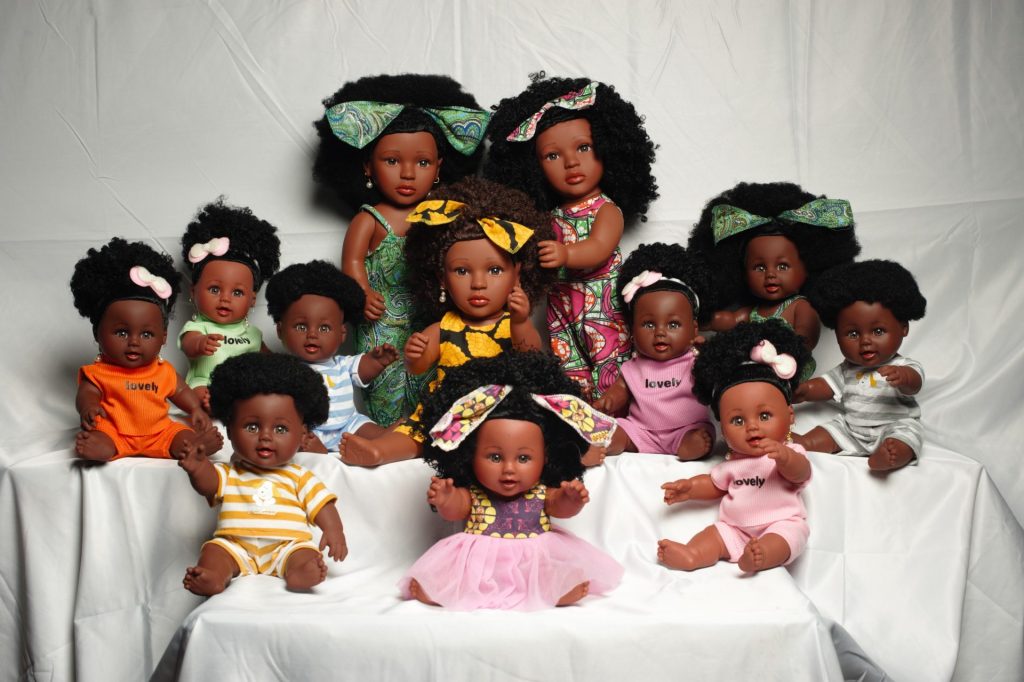
Though born and raised in London, Ogundele felt marginalised as a child, unable to see herself represented in the media, instead inundated with images of blue-eyed, blond-haired kids.
She recalls incidents of being ignored by teachers and, on occasion, having her name mispronounced, yet having to sit there and allow it, answering to a name which wasn’t hers.
These experiences, fuelled by the absence of black dolls on the market, made Ogundele determined to find a better way for her daughter by creating a doll Isabella could identify with – of which hair played great importance.
Ogundele has felt pressure to relax her hair for some jobs, as having big afros in a workplace felt unacceptable.
She said: “My afro was sometimes even seen as a political stance; how’s my hair a political statement?
“So realistic curls for the dolls was crucial because I want Isabella to grow up to love her hair – to be happy in her own skin.”
When Isabella could not find a dark-skinned toy, she recalled feeling pushed into the shadows and thought she wasn’t special enough for dolls like her to be made.
She said: “But now we have a whole shop of black dolls; I feel like I can express myself, and people can see me and my skin colour.”
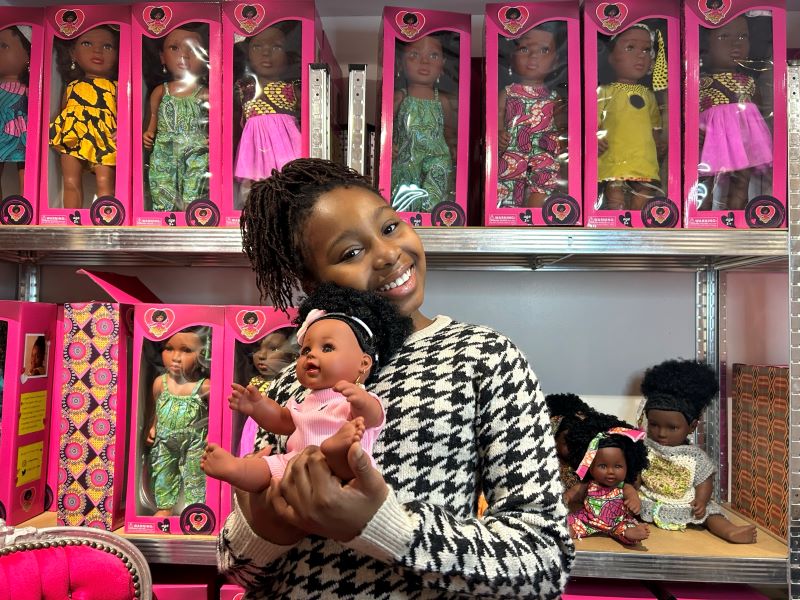
The dolls are dressed in bright Nigerian Ankara patterns and celebrate black culture by showcasing them in stylish, designer-type clothes.
A shop customer, Rachel Kisakye, 36, also struggled to find a black doll for her daughter Joy, nine, until a friend knitted her one.
Joy carried the doll everywhere, and people constantly asked where they bought it.
Kisakye said: “We live in Ealing where we are a minority, so it’s important my daughter sees dolls her colour, so she knows we are normal – not an abnormality.
“All parents should be able to find a doll representing their child, so a shop like this is precious.”
Ogundele reflected on her journey of early starts, late nights, and working weekends, all while juggling a day job and parenting.
She was able to quit her mentoring job in April to focus full-time on Lola Love Dolls and credits Westway Trust and the Ladbroke Grove community for helping to achieve her goals.
Isabella’s grandmother, Folashade Ogundele 69, was also highly praised by mother and daughter as a pillar of strength.
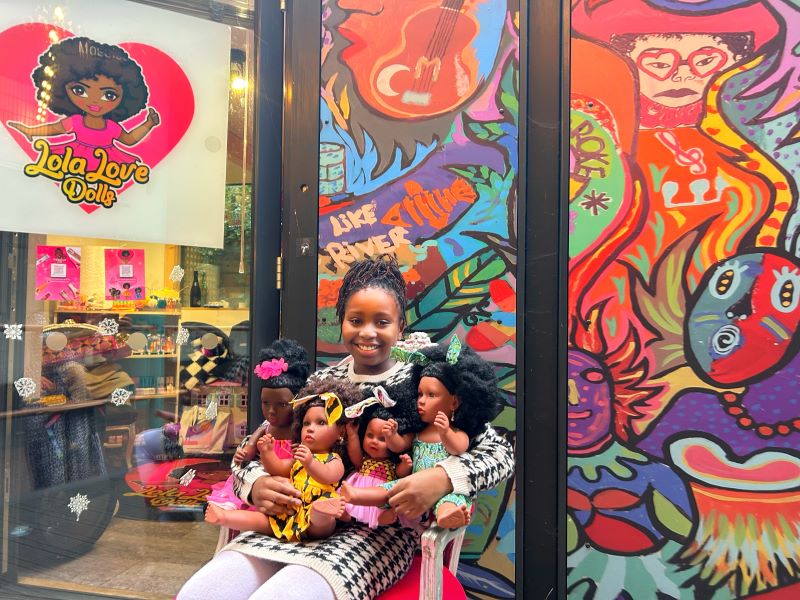
Creating Lola Love Dolls and the ethos behind it has propelled Ogundele into motivational speaking, most recently invited as a guest at The Wellcome Trust.
And despite naysayers who criticised saying the dolls would never sell, Lola Love Doll may soon be distributed by a major chain of upscale department stores in the UK.
When Isabella was asked what she would like to be when she got older, she smiled with an instant answer.
She replied: “A businesswoman… like my mum.”
Featured image credit: Mark Campbell
